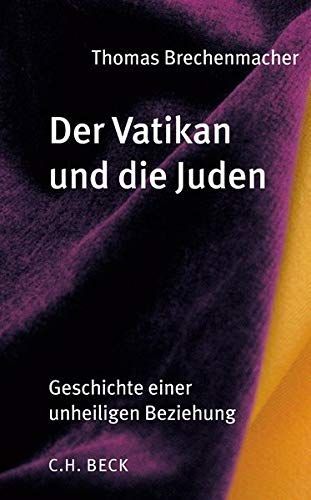
Der Vatikan und die Juden Geschichte einer unheiligen Beziehung vom 16. Jahrhundert bis zur Gegenwart
Vatican policy toward the Jews was governed, from late antiquity up to the end of the Church State in 1870, by the concept of "dual protection": of the faith of Christians from the influence of Judaism, and of the Jews from the violence of Christians. The Church carried out this policy in its own state, and pressed it also on foreign rulers. But as the Reformation and Enlightenment placed the Church on the defensive, it clung ever more to the need to protect Christianity. Even when circumstances forced the Church into greater toleration of other religions, doctrinal intolerance erupted periodically in incidents such as the Mortara case. Explains and partly defends the reactions of Popes Pius XI and Pius XII, and of the German bishops, to the Nazi persecution and extermination of the Jews. The Church was powerless and was itself persecuted, so the decision was to prefer quiet help for the victims rather than loud public protest which would have led to Nazi retaliation against the rank and file of Catholics without saving the Jews. Sketches the gradual postwar changes in Vatican-Jewish relations, including Pope Paul VI's visit to Israel and the Nostra aetate document.